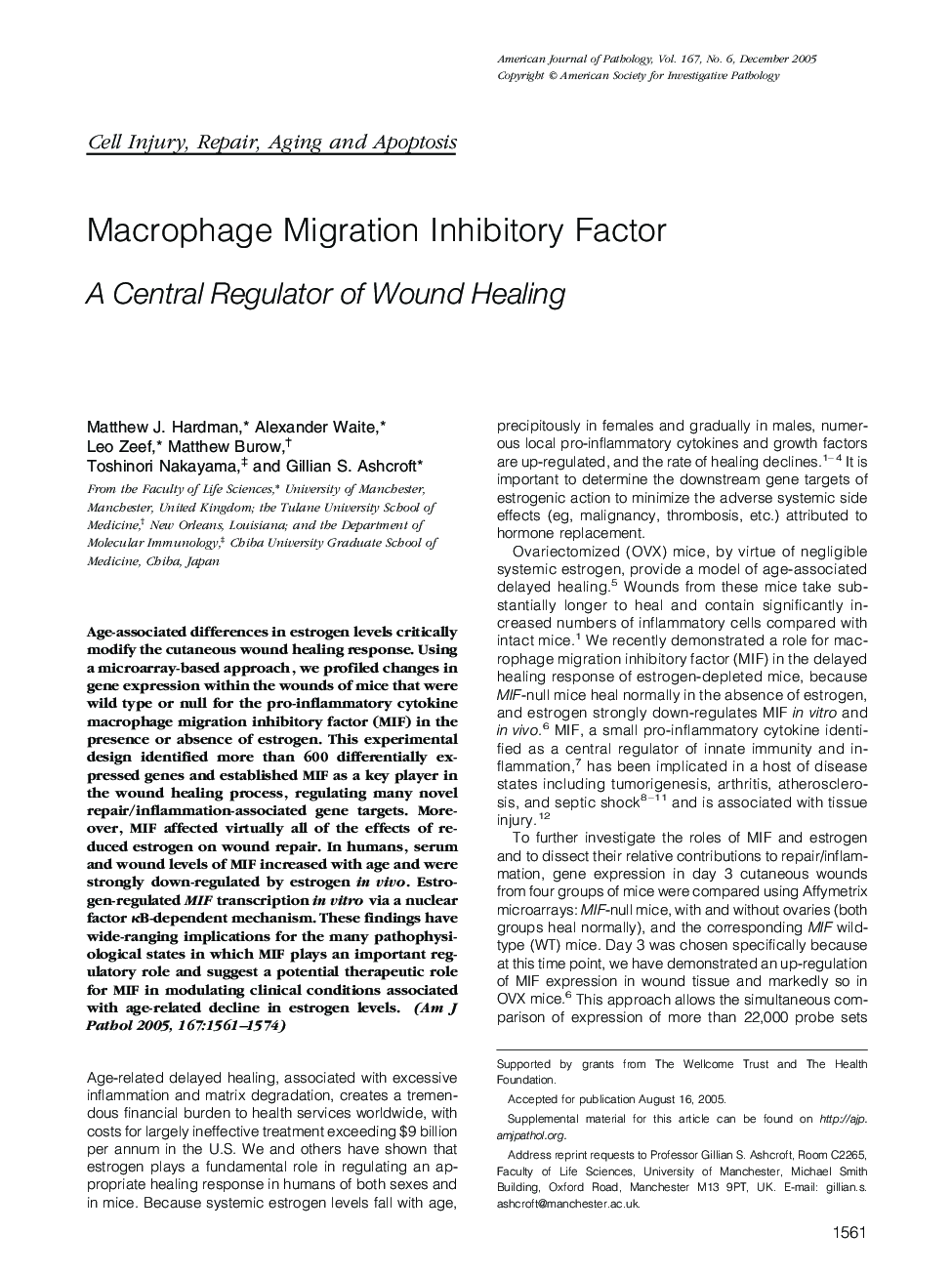| Article ID | Journal | Published Year | Pages | File Type |
|---|---|---|---|---|
| 9943183 | The American Journal of Pathology | 2005 | 14 Pages |
Abstract
Age-associated differences in estrogen levels critically modify the cutaneous wound healing response. Using a microarray-based approach, we profiled changes in gene expression within the wounds of mice that were wild type or null for the pro-inflammatory cytokine macrophage migration inhibitory factor (MIF) in the presence or absence of estrogen. This experimental design identified more than 600 differentially expressed genes and established MIF as a key player in the wound healing process, regulating many novel repair/inflammation-associated gene targets. Moreover, MIF affected virtually all of the effects of reduced estrogen on wound repair. In humans, serum and wound levels of MIF increased with age and were strongly down-regulated by estrogen in vivo. Estrogen-regulated MIF transcription in vitro via a nuclear factor κB-dependent mechanism. These findings have wide-ranging implications for the many pathophysiological states in which MIF plays an important regulatory role and suggest a potential therapeutic role for MIF in modulating clinical conditions associated with age-related decline in estrogen levels.
Related Topics
Health Sciences
Medicine and Dentistry
Cardiology and Cardiovascular Medicine
Authors
Matthew J. Hardman, Alexander Waite, Leo Zeef, Matthew Burow, Toshinori Nakayama, Gillian S. Ashcroft,
